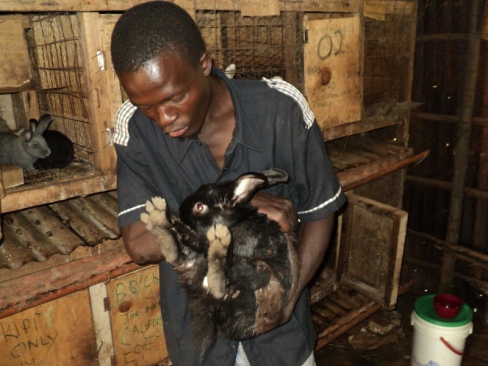×
The Standard e-Paper
Kenya’s Boldest Voice

A trip to pay dowry for his kin in Meru became a turning point for 28- year-old Kennedy Anyanzwa from Ebukambuli village, Khwisero in Kakamega County. While his kin acquired a beauty, Anyanzwa returned with what pleased him; rabbit rearing skills.
His visit was a godsend because he met an in-law who was a thriving rabbit farmer.